Germany, France, Russia and Islam (no imprint info) G. P. Putnams
Sons, 1915
Online eText Edition: (sample pages in the free preview) http://www.questia.com/PM.qst?a=o&d=3176103
CONTENTS. TURKEY AND THE GREAT NATIONS 9
~ GERMANY AND THE ORIENTAL QUESTION 78 ~ WHAT WE DEMAND
FROM FRANCE 98 ~ I. What we Demand 99
~ II. Alsace and Lorraine Past and Present 115 ~
III. The Claims of Prussia 158 ~ THE INCORPORATION
OF ALSACE-LORRAINE IN THE GERMAN EMPIRE 179 ~ IN MEMORY
OF THE GREAT WAR 198 ~ LUTHER AND THE GERMAN NATION
223 ~ GUSTAVUS ADOLPHUS AND GERMANY'S FREEDOM 256
~ OUR EMPIRE
Other:
A Word About Our Jews. 1889 German historian and politician,
justifies the anti-Semitic campaigns in Germany, bringing anti-Semitism
into learned circles.
History of Germany in the nineteenth century selections
from the translation of Eden and Cedar Paul / Heinrich von Treitschke ;
edited and with an introd. by Gordon A. Craig. -- Chicago : University
of Chicago Press, 1975.
Selections from Treitschke's Lectures on politics / H. Treitschke
/ Translated by Adam L. Gowans. -- First edition, October, 1914. Reprinted,
October, 1914. Reprinted with correct -- New York : Frederick A. Stokes
Co. [1914]
The organization of the army. -- London and Glasgow, Gowans
& Gray, ltd., 1914. |
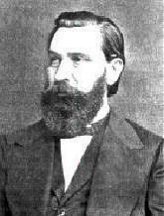 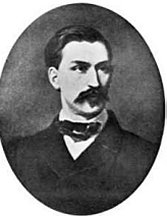 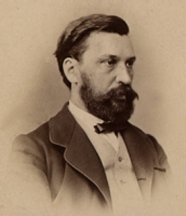 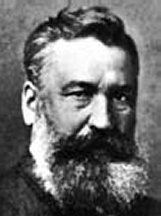 Heinrich von Treitschke (September
15, 1834 - April 28, 1896), German historian and political writer, was
born at Dresden. He was the son of an officer in the Saxon army who rose
to be governor of Konigstein and military governor of Dresden. Young Treitschke
was prevented by deafness from entering the public service. After studying
at Leipzig and Bonn, where he was a pupil of Dahlmann, he established himself
as a privatdozent at Leipzig, lecturing on history and politics. He at
once became very popular with the students, but his political opinions
made it impossible for the Saxon government to appoint him to a professorship.
Heinrich von Treitschke (September
15, 1834 - April 28, 1896), German historian and political writer, was
born at Dresden. He was the son of an officer in the Saxon army who rose
to be governor of Konigstein and military governor of Dresden. Young Treitschke
was prevented by deafness from entering the public service. After studying
at Leipzig and Bonn, where he was a pupil of Dahlmann, he established himself
as a privatdozent at Leipzig, lecturing on history and politics. He at
once became very popular with the students, but his political opinions
made it impossible for the Saxon government to appoint him to a professorship.
 He
was at that time a strong Liberal; he hoped to see Germany united into
a single state with a parliamentary government, and that all the smaller
states would be swept away. In 1863 he was appointed professor at Freiburg;
in 1866, at the outbreak of war, his sympathies with Prussia were so strong
that he went to Berlin, became a Prussian subject, and was appointed editor
of the Preussische Jahrbücher. A violent article, in which he demanded
the annexation of Hanover and Saxony, and attacked with great bitterness
the Saxon royal house, led to an estrangement from his father, who enjoyed
the warm friendship of the king. It was only equalled in its ill humour
by his attacks on Bavaria in 1870. After holding appointments at Kiel and
Heidelberg, he was in 1874 made professor at Berlin; he had already in
1871 become a member of the Reichstag, and from that time till his death
he was one of the most prominent figures in the city. He
was at that time a strong Liberal; he hoped to see Germany united into
a single state with a parliamentary government, and that all the smaller
states would be swept away. In 1863 he was appointed professor at Freiburg;
in 1866, at the outbreak of war, his sympathies with Prussia were so strong
that he went to Berlin, became a Prussian subject, and was appointed editor
of the Preussische Jahrbücher. A violent article, in which he demanded
the annexation of Hanover and Saxony, and attacked with great bitterness
the Saxon royal house, led to an estrangement from his father, who enjoyed
the warm friendship of the king. It was only equalled in its ill humour
by his attacks on Bavaria in 1870. After holding appointments at Kiel and
Heidelberg, he was in 1874 made professor at Berlin; he had already in
1871 become a member of the Reichstag, and from that time till his death
he was one of the most prominent figures in the city.
On Sybel's death he succeeded
him as editor of the Historische Zeitschrift. He had outgrown his early
Liberalism and become the chief panegyrist of the house of Hohenzollern.
He did more than any one to mould the minds of the rising generation, and
he carried them with him even in his violent attacks on all opinions and
all parties which appeared in any way to be injurious to the rising power
of Germany. He supported the government in its attempts to subdue by legislation
the Socialists, Poles and Catholics; and he was one of the few men of eminence
who gave the sanction of his name to the attacks on the Jews which began
in 1878. As a strong advocate of colonial expansion he was also a bitter
enemy of Great Britain, and he was to a large extent responsible for the
anti-British feeling of German Chauvinism during the last years of the
19th century. In the Reichstag he had originally been a member of the National
Liberal party, but in 1879 he was the first to accept the new commercial
policy of Bismarck, and in his later years he joined the Moderate Conservatives,
but his deafness prevented him from taking a prominent part in debate.
As an historian Treitschke
holds a very high place. He approached history as a politician and confined
himself to those periods and characters in which great political problems
were being worked out: above all, he was a patriotic historian, and he
never wandered far from Prussia. His great achievement was the History
of Germany in the Nineteenth Century. The first volume was published in
1879, and during the next sixteen years four more volumes appeared, but
at his death he had only advanced to the year 1847. The work shows extreme
diligence, and scrupulous care in the use of authorities. It is discursive
and badly arranged, but it is marked by a power of style, a vigour of narrative,
and a skill in delineation of character which give life to the most unattractive
period of German history; notwithstanding the extreme spirit of partisanship
and some faults of taste, it will remain a remarkable monument of literary
ability. Besides this he wrote a number of biographical and historical
essays, as well as numerous articles and papers on contemporary politics,
of which some are valuable contributions to political thought.

The most important of the
essays have been collected under the title Historische und politische Aufsatze
(4 vols., Leipzig, 1896); a selection from his more controversial writings
was made under the title Zehn Jahre deutscher Kämpfe; in 1896 a new
volume appeared, called Deutsche Kämpfe, neue Folge. After his death
his lectures on political subjects were published under the title Politik.
He brought out also in 1856 a short volume of poems called Vater-ländische
Gedichte, and another volume in the following year. The only works translated
into English are two pamphlets on the war of 1870, What we demand from
France (London, 1870), and The Fire-test of the North German Confederation
(1870).
1911
Encyclopedia Britannica
Biography
Karl
Marx and Heinrich von Treitschke
|


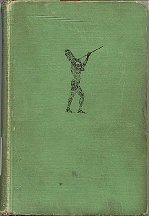
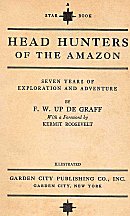
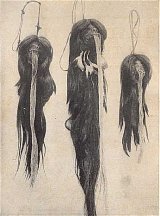
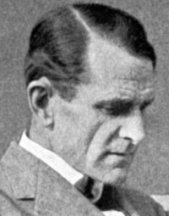 Quito.
September 30th. 1894.
Quito.
September 30th. 1894.
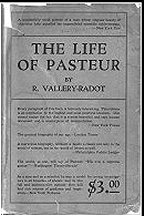
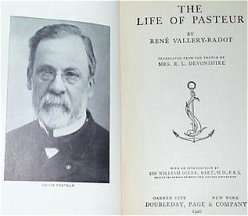
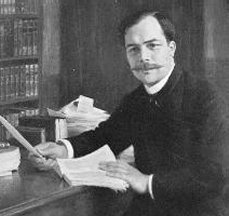
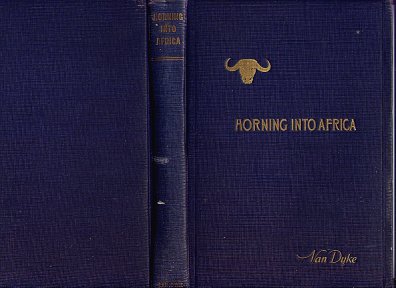
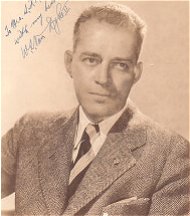
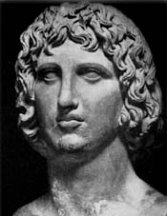
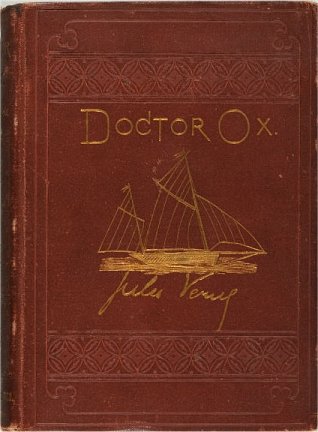
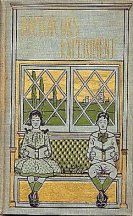
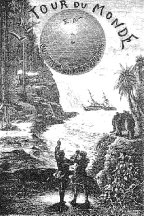
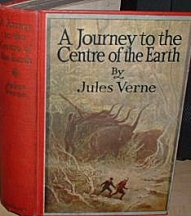
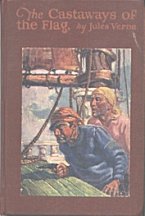
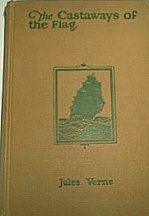
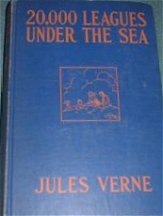
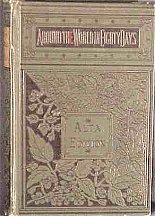
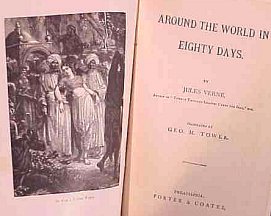
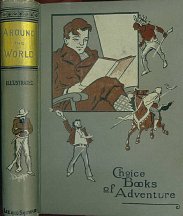
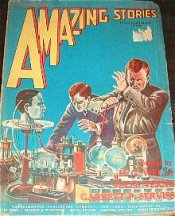
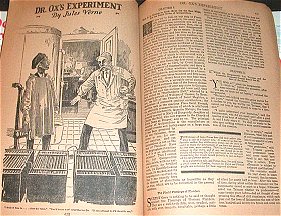
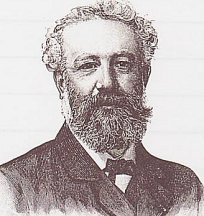
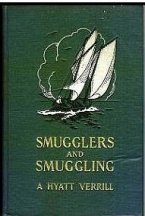
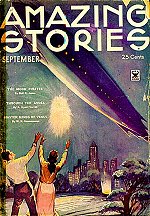 Others
in the series
Others
in the series




 He
was at that time a strong Liberal; he hoped to see Germany united into
a single state with a parliamentary government, and that all the smaller
states would be swept away. In 1863 he was appointed professor at Freiburg;
in 1866, at the outbreak of war, his sympathies with Prussia were so strong
that he went to Berlin, became a Prussian subject, and was appointed editor
of the Preussische Jahrbücher. A violent article, in which he demanded
the annexation of Hanover and Saxony, and attacked with great bitterness
the Saxon royal house, led to an estrangement from his father, who enjoyed
the warm friendship of the king. It was only equalled in its ill humour
by his attacks on Bavaria in 1870. After holding appointments at Kiel and
Heidelberg, he was in 1874 made professor at Berlin; he had already in
1871 become a member of the Reichstag, and from that time till his death
he was one of the most prominent figures in the city.
He
was at that time a strong Liberal; he hoped to see Germany united into
a single state with a parliamentary government, and that all the smaller
states would be swept away. In 1863 he was appointed professor at Freiburg;
in 1866, at the outbreak of war, his sympathies with Prussia were so strong
that he went to Berlin, became a Prussian subject, and was appointed editor
of the Preussische Jahrbücher. A violent article, in which he demanded
the annexation of Hanover and Saxony, and attacked with great bitterness
the Saxon royal house, led to an estrangement from his father, who enjoyed
the warm friendship of the king. It was only equalled in its ill humour
by his attacks on Bavaria in 1870. After holding appointments at Kiel and
Heidelberg, he was in 1874 made professor at Berlin; he had already in
1871 become a member of the Reichstag, and from that time till his death
he was one of the most prominent figures in the city.

















